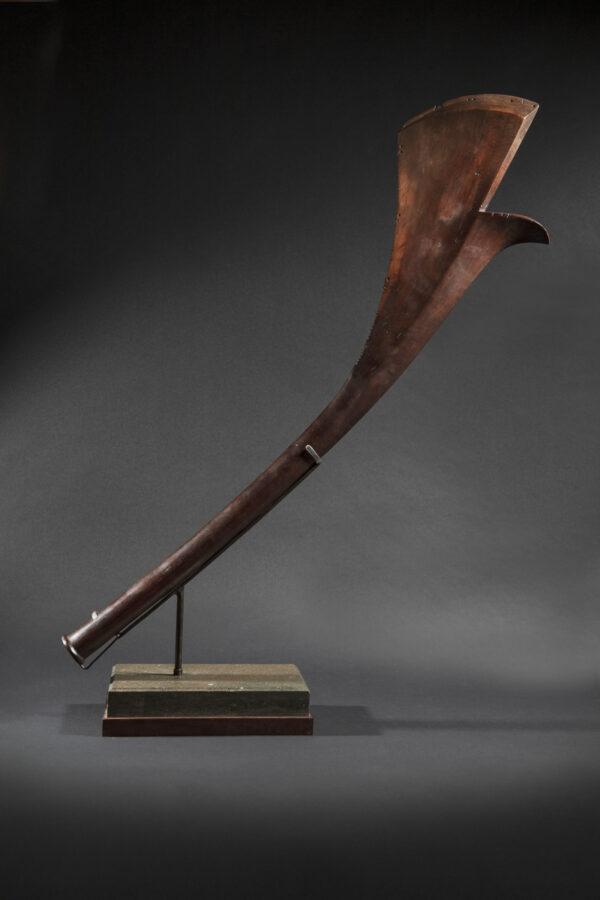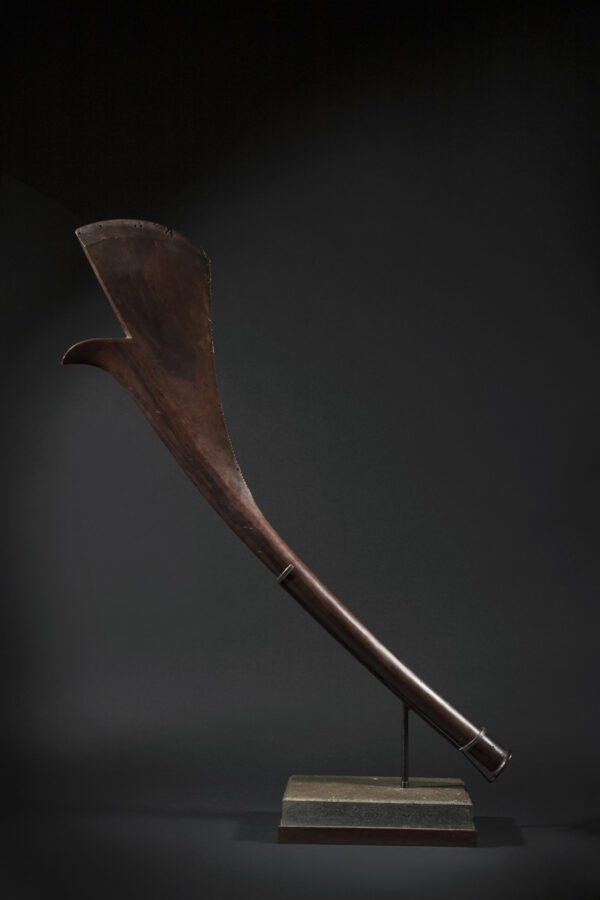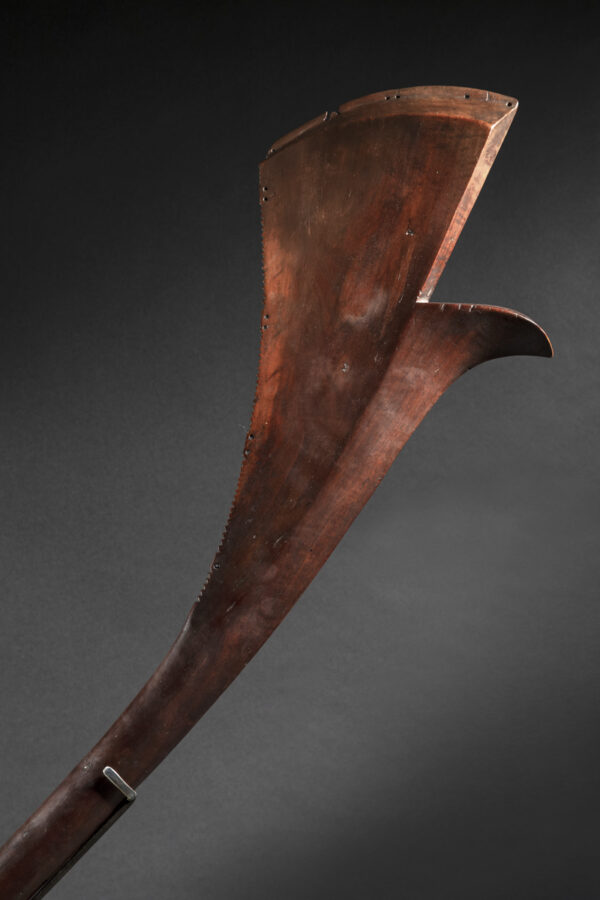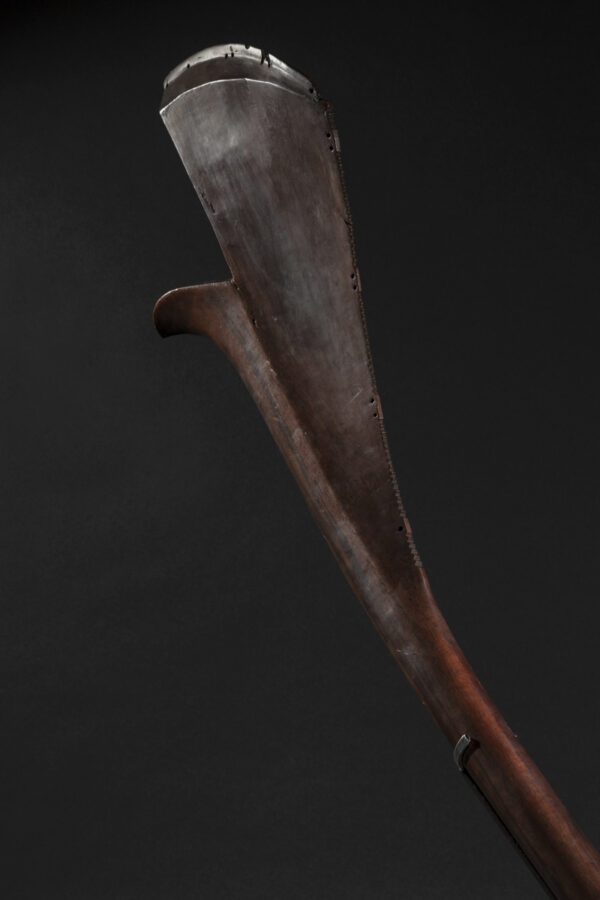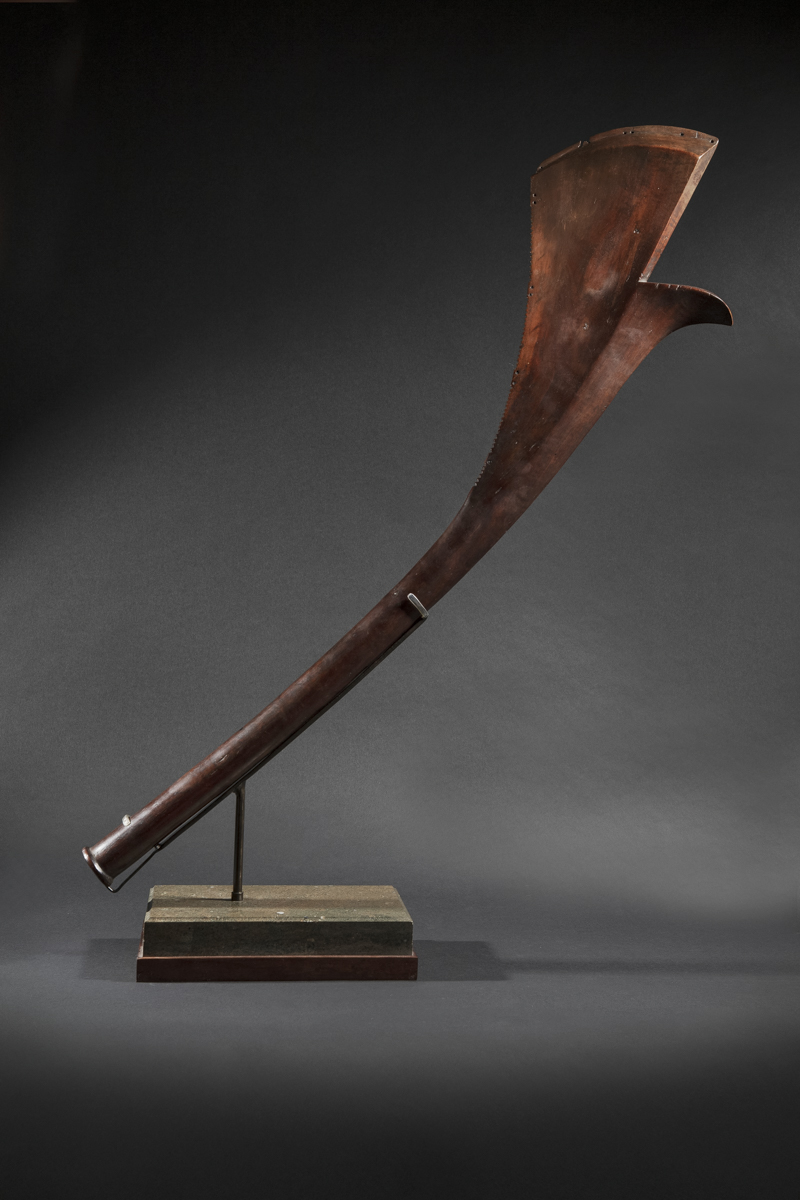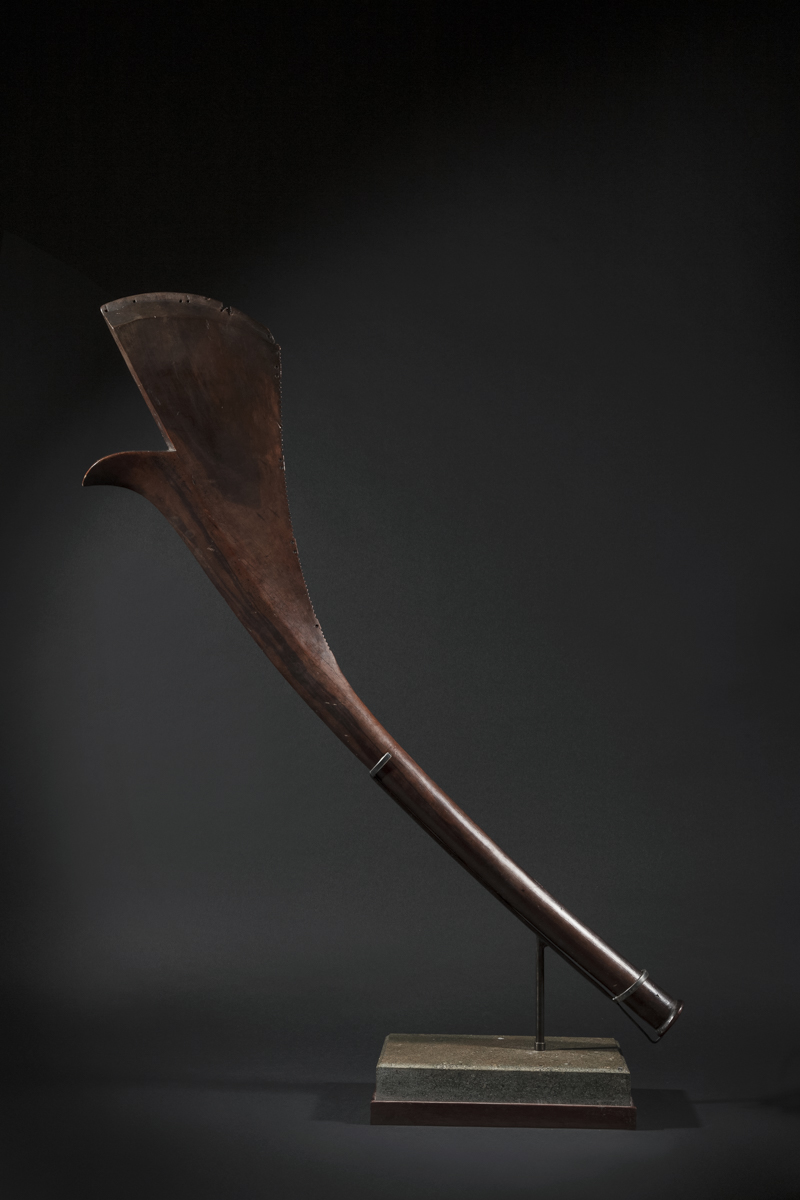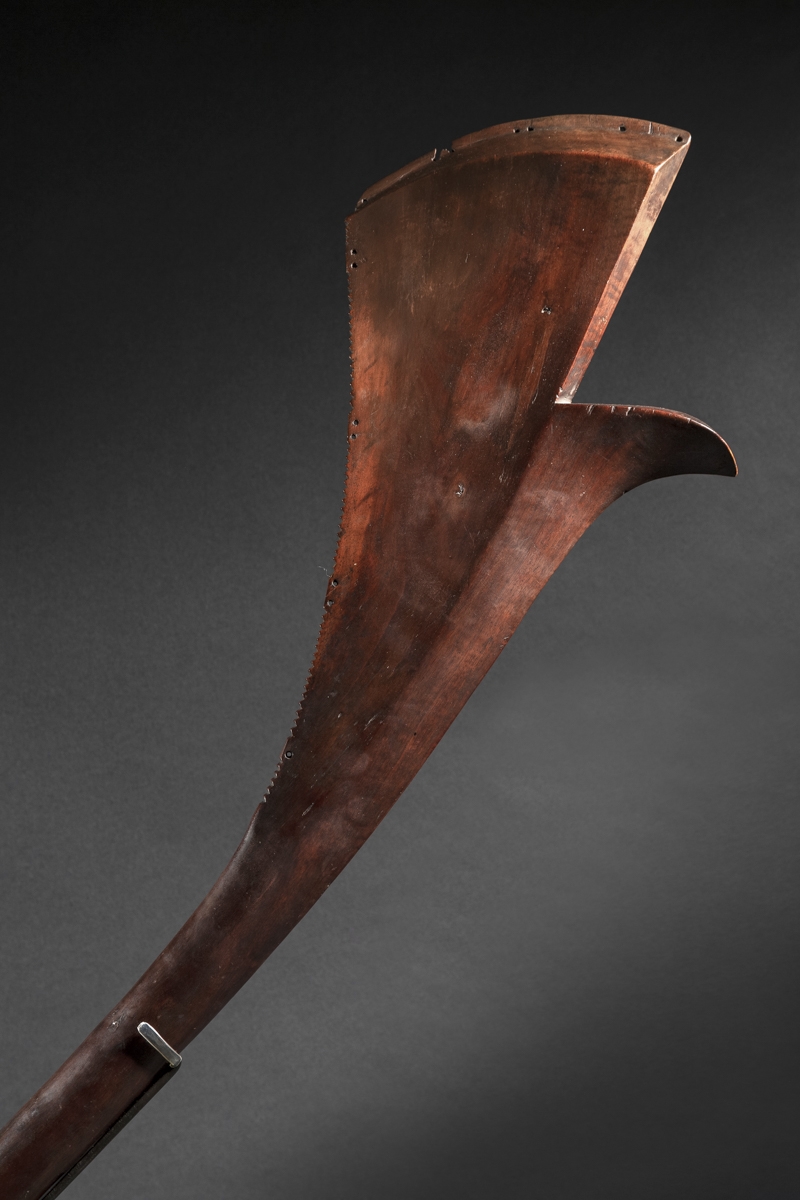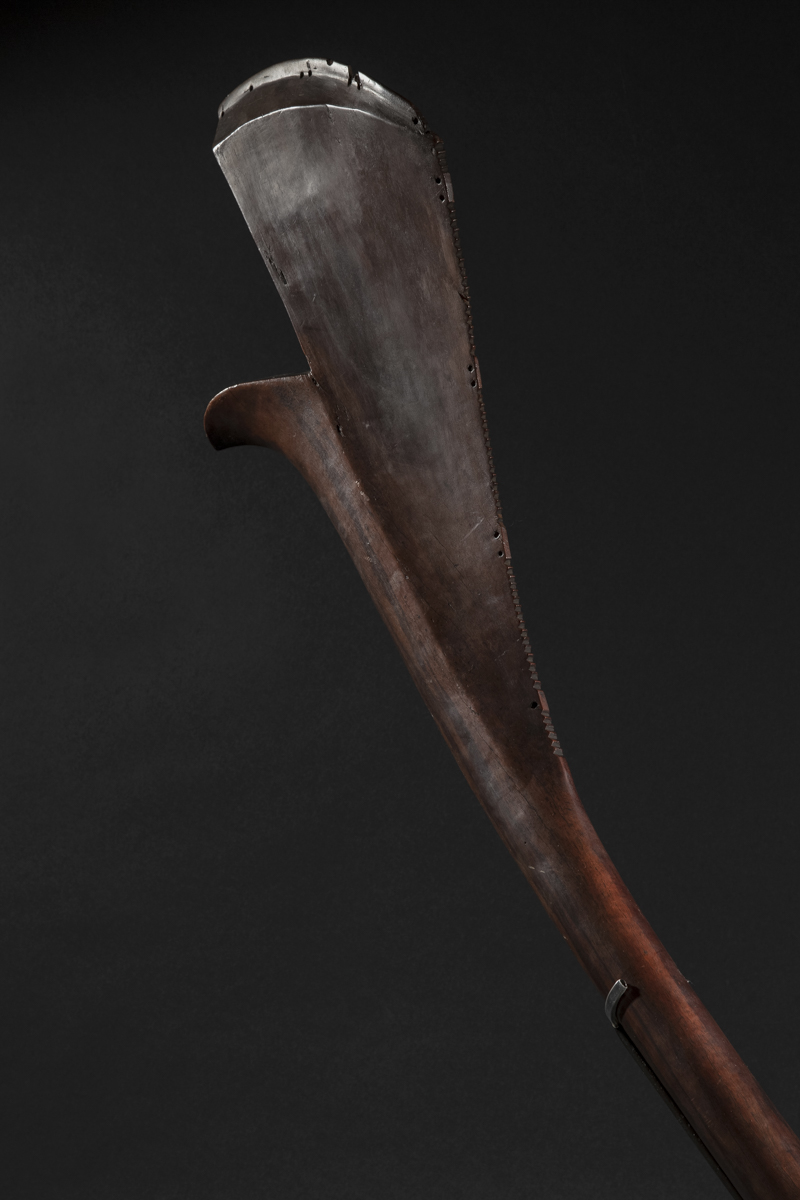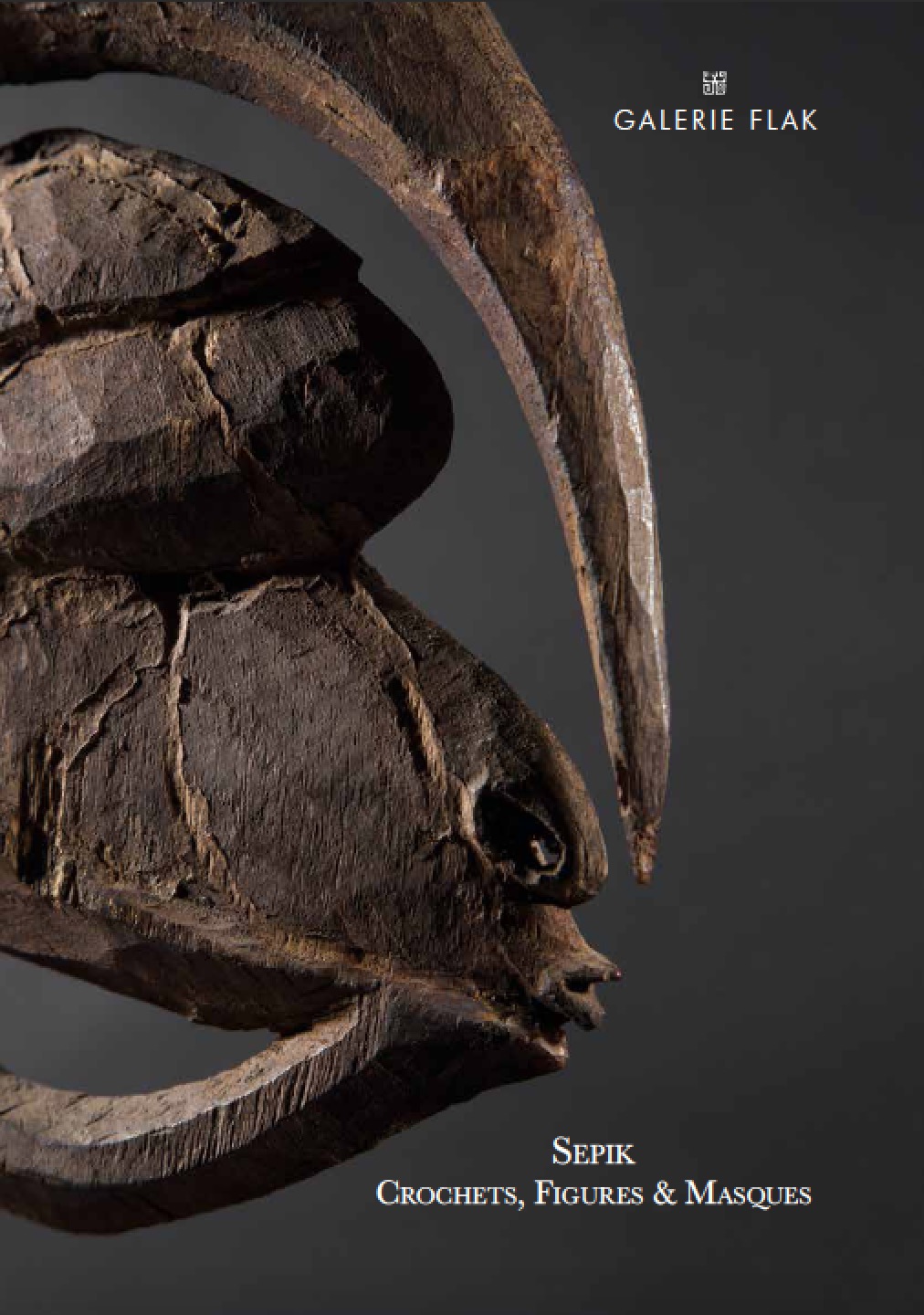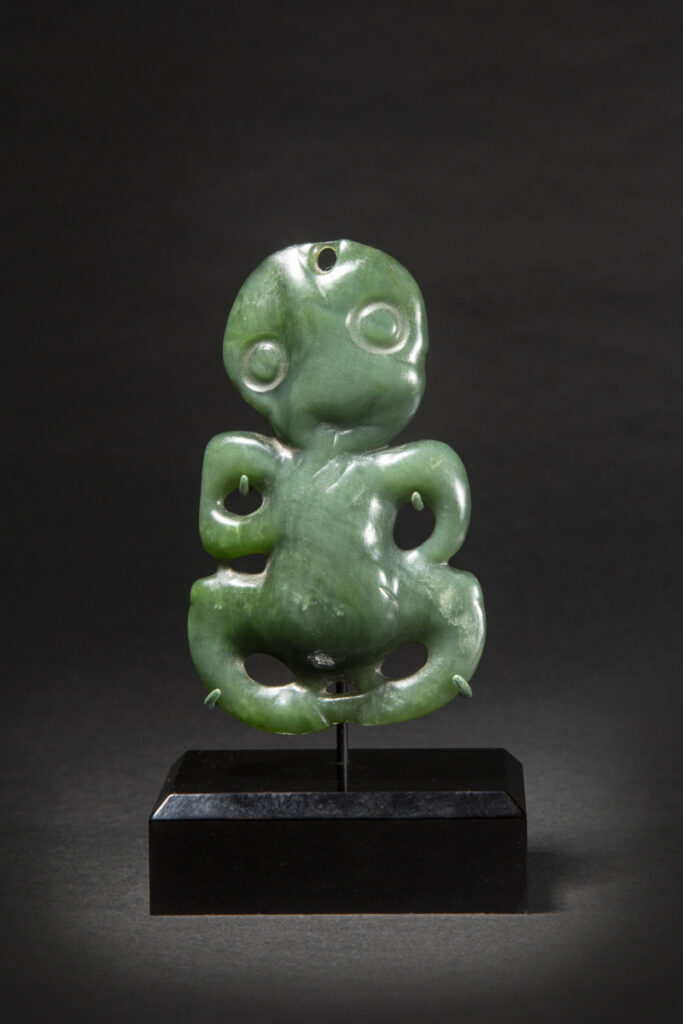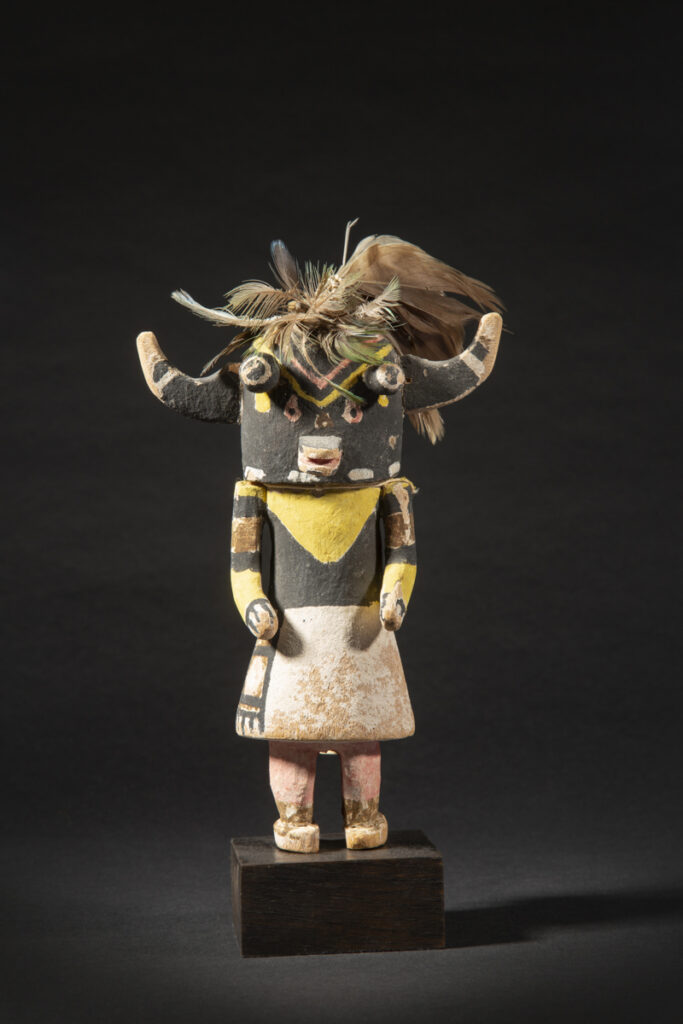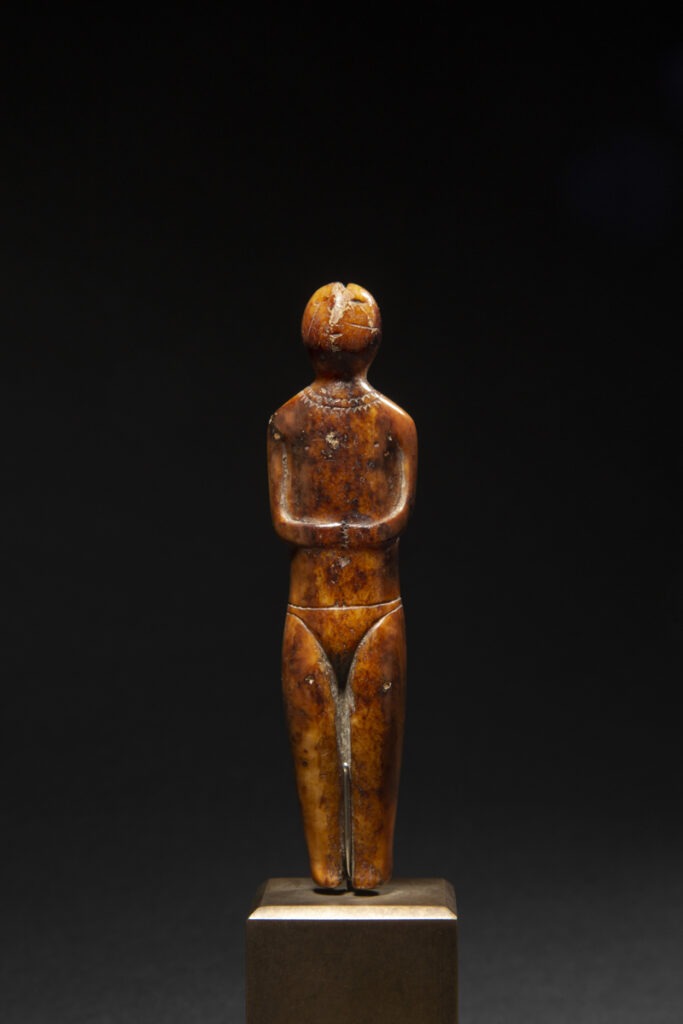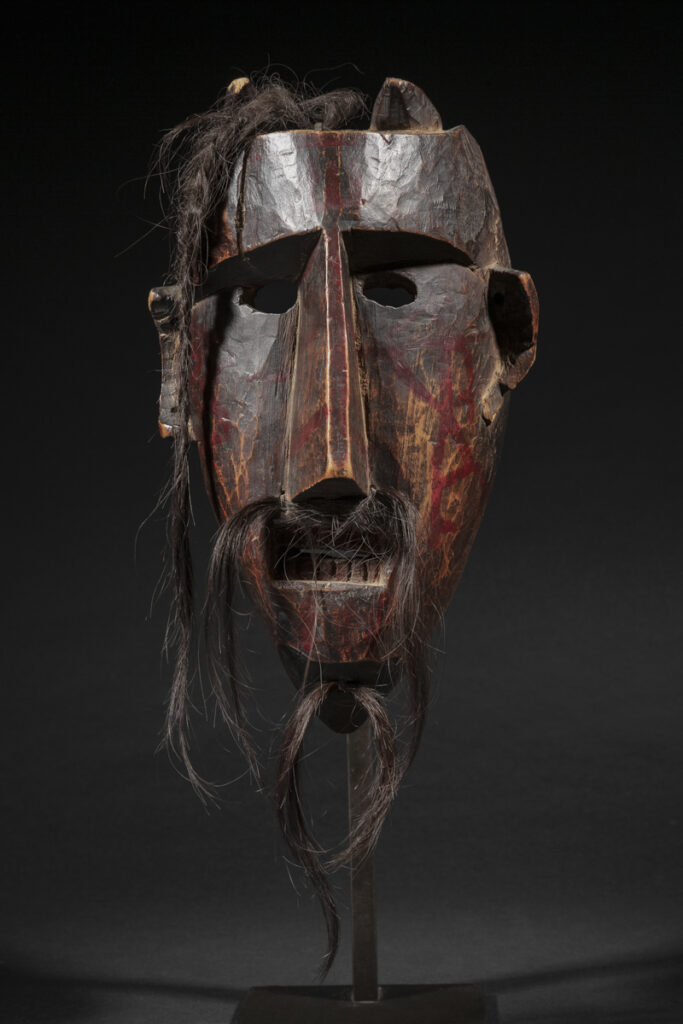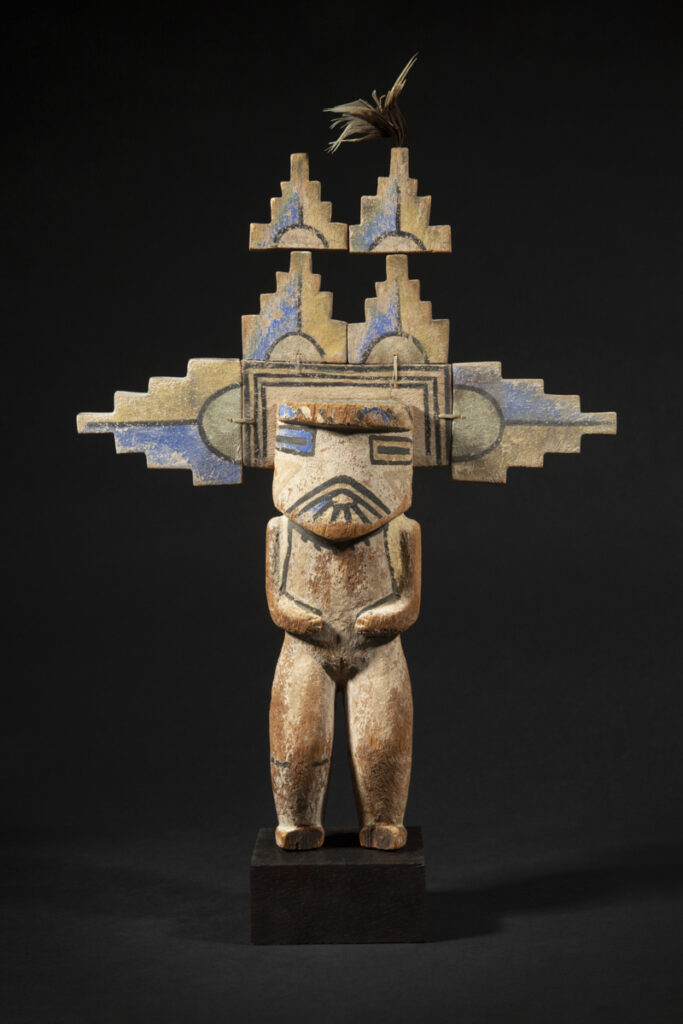oceania | Fiji Islands
Sali War Club
Fiji Islands
Sali war club
19th century
Carved wood
Height: 110 cm – 43 ¼ in.
Provenance
Ex collection Alex Arthur, Brussels
Ex collection Edric van Vredenburgh, Brussels
Sali War Club 110 cm / Galerie Flak
Price on request
It was in 1643 that the Dutch navigator Abel Janszoon Tasman discovered the Fiji archipelago in the South Pacific. Traditional Fiji society was organized around clans and divided into hierarchal classes, with chiefs and priests found at the summit. War occupied a preponderant place within Fijian society. Battles served to reinforce the authority of chiefs as well as to multiply ties between different groups of allies.
War clubs conferred prestige on their owners. They demonstrated their prominent status as warriors.
These clubs are named after the clawed sali flower of one of the wild banana-like plants (Musa sp.), which grow on Fiji Islands. Also known as Cali, Thali, or Tebetebe, their longer, broader cheeks, and their more highly developed crest or spur distinguish them from the gata clubs.
The bladed cheeks were designed to cut through and snap bone rather than smash it. It has been claimed that the spur was used like the beak of a spiked battle-hammer or totokia to penetrate the skull, and that it was used to parry adversary’s club blow. Much used in dancing as were the other spurred clubs, Sali were often held by the spur in club dances, and many light Sali were specially made for dancing purposes.
The war club presented here is an exceptional example in terms of the quality of its sculpture.
War clubs conferred prestige on their owners. They demonstrated their prominent status as warriors.
These clubs are named after the clawed sali flower of one of the wild banana-like plants (Musa sp.), which grow on Fiji Islands. Also known as Cali, Thali, or Tebetebe, their longer, broader cheeks, and their more highly developed crest or spur distinguish them from the gata clubs.
The bladed cheeks were designed to cut through and snap bone rather than smash it. It has been claimed that the spur was used like the beak of a spiked battle-hammer or totokia to penetrate the skull, and that it was used to parry adversary’s club blow. Much used in dancing as were the other spurred clubs, Sali were often held by the spur in club dances, and many light Sali were specially made for dancing purposes.
The war club presented here is an exceptional example in terms of the quality of its sculpture.
Explore the entire collection
